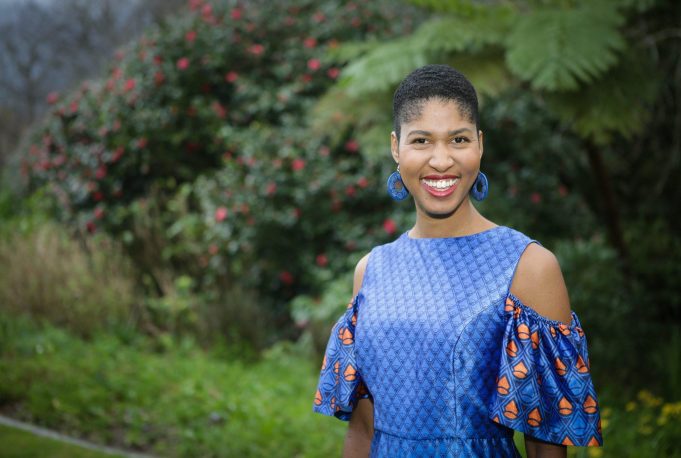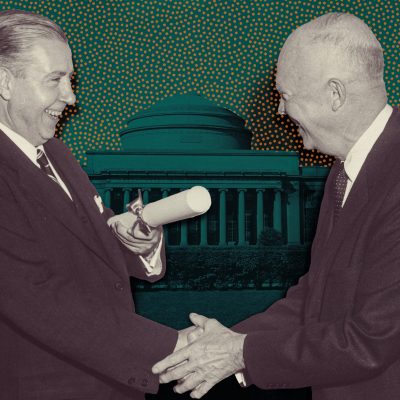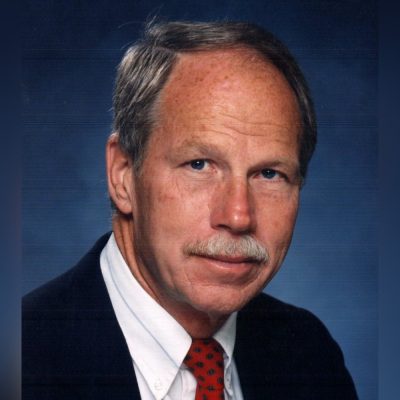
Prof. Danielle Wood selected for Just Tech Fellowship’s third cohort
The Just Tech program, a Social Science Research Council (SSRC) project, named its third cohort of Just Tech Fellows today. These ten visionaries—Todd Whitney, Miliaku Nwabueze, Danielle Wood, Romi Morrison, Petra Kuppers, Julian Posada, Dorothy Santos, Lauren Lee McCarthy, Catherine Knight Steele, and Kriangsak Teerakowitkajorn—will each receive two-year fellowships to tackle complex issues at the intersection of technology and society.
The SSRC’s Just Tech program is designed to bring together intellectual pioneers whose work challenges the boundaries of technological development. Through a “whole person” support model of unrestricted awards and supplementary funding, the fellowship provides the resources and space for collaboration and impactful work. “We know from the research literature that unrestricted fellowships give creators the freedom and autonomy they need to innovate,” said Anna Harvey, president of the Social Science Research Council. “This is a remarkable cohort with an impressive set of projects, and I’m excited to see what they do with their fellowships.”
Amid ongoing conversations over the potential impacts of ever-evolving technological tools, the Just Tech program was designed to invest in the innovators working to reimagine an equitable and inclusive future. The fellows are chosen to represent a growing network of researchers, technologists, artists, community organizers, lawyers, and journalists who prioritize humanity, dignity, and well-being in tech. Alongside the previous cohorts of fellows, these new fellows will address questions of power, equity, and the public impact of new technologies. “Two years to build alongside talented researchers and artists is a rare gift,” said Todd Whitney, an incoming 2024–2026 Just Tech Fellow, journalist, and technologist. “I’m excited for the opportunity to surround myself with thoughtful people who are creating better and safer data futures.”
Following a rigorous review of over 800 applications by a team of 48 experts, Just Tech’s Selection Committee—Nabiha Syed, Stephanie Dinkins, Salome Asega, Javier Torres-Campos, Alex Gil, Charlton McIlwain, Desmond Patton, Matthew Tamayo-Rios, and Clementine Jacoby—selected ten exceptional fellows who will work on issues ranging from artificial intelligence to space technology, environmental justice, workers’ rights, and disability justice.
“The Just Tech Fellowship has been a transformative experience for me as an organizer and activist in the disability justice movement,” said Jess Moore Matthews, 2023–2025 Just Tech Fellow and Founder & Chief Good Troublemaker at Backbone Digital Leaders. “The encouragement to rest, heal, imagine, and collaborate has inspired more innovation and creativity than I thought possible when I first began. Simply put, this is justice in technology.”
Meet the 2024–2026 Fellows:
Todd Whitney, a journalist and technologist, will design air quality monitors using open-source hardware technologies and community input as the foundation for community-oriented environmental data collection.
Miliaku Nwabueze, an organizer and designer, plans to convene Black and Brown activists to improve their digital hygiene and collectively introduce them to alternative tech ecosystems.
Danielle Wood is a professor and director of the Space Enabled Research Group at the MIT Media Lab. She will lead projects that apply satellite Earth Observation technology for environmental management in cooperation with leaders from Africa and Native American Tribes.
Romi Morrison is an interdisciplinary artist, researcher, and educator. Romi aims to redress how predictive computing can be used to perpetuate racial violence by exploring Black diasporic traditions of encoding, information sharing, and trust building.
Petra Kuppers is a disability culture activist and community performance artist whose project will examine how virtual/extended reality (VR/XR) technologies can address questions about access, community, sensuality, environmental poetics, and the futures of queer/crip play.
Julian Posada is an assistant professor of American studies at Yale University. Julian’s work will investigate the dynamics between human labor and data production in the artificial intelligence industry in Latin America.
Dorothy Santos is a Filipino American storyteller, artist, and scholar. Dorothy’s project aims to raise awareness about how emergency infrastructures operate and the psychological challenges first responders face, in particular with the rise of automation in the emergency dispatcher’s role.
Lauren Lee McCarthy is a Los Angeles-based artist examining social relationships amid surveillance, automation, and algorithmic living. She will explore the social and environmental impacts of AI and automation through the lens of self-driving vehicles.
Catherine Knight Steele is an associate professor of communication at the University of Maryland—College Park and the director of the Black Communication and Technology Lab (BCaT). Her work will address the expansion of automation, machine learning, and AI in education.
Kriangsak Teerakowitkajorn is an organizer, researcher, founder, and managing director of the Just Economy and Labor Institute (JELI) in Bangkok, Thailand. His work focuses on the challenges digital platform workers in Asia face, particularly those in services and personal care.
The Just Tech program, including the digital platform and fellowship, is funded by a group of philanthropic foundations committed to cultivating critical work on the intersection of technology and society, including the Ford Foundation, the John D. and Catherine T. MacArthur Foundation, and the Surdna Foundation.
For media inquiries or to reach the Just Tech team contact: just-tech@ssrc.org.

